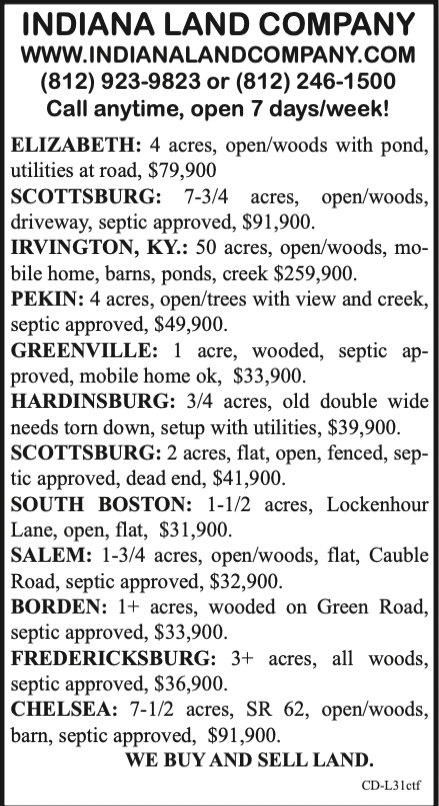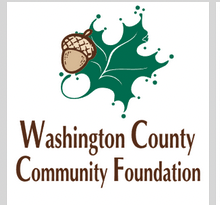
Volunteering one's time can be a beneficial undertaking. The Mayo Clinic reports research has shown that volunteering can improve physical and mental health and provide a sense of purpose, all the while teaching valuable skills. Unfortunately, many busy individuals lament that they simply do not have the time to volunteer.
Although charitable work requires an investment of time, busy professionals may find that there are plenty of opportunities to get involved that do not require making a sizable time commitment. Here is how to fit volunteering into your day no matter how busy you might be.
· Start volunteer efforts at work. One way to incorporate charitable work into your week is to pioneer a program at your place of employment. This approach can increase interest in volunteerism among colleagues, and depending on your employers' flexibility, time spent volunteering may take place during working hours. This means you can still fulfill your non-work-related obligations when the workday ends.
· Volunteer remotely. If finding something that fits with your schedule is challenging, try searching for online opportunities, suggests My Selfless Act, an online platform for sharing stories of do-goodery. By volunteering remotely, you can customize the time you volunteer to when you're available. You even can work with someone in another time zone.
· Prioritize volunteering. Sometimes not having enough time for charitable work comes down to simply poor time management. If you make volunteering a priority, you can likely find ways to streamline your workday and free up opportunities to get involved.
· Ask for help. Identify people who are supportive and can lend a helping hand so you can find time to volunteer. Delegate some of your tasks to free up time for philanthropic endeavors.
· Seek opportunities that require shorter time commitments. Plenty of charities have volunteer opportunities that do not require a significant investment of time. Micro-events, or volunteer work that is set up in shifts, merit consideration.
· Look for easy registration. Signing up to volunteer should be easy. Let the sign-up be a tell as to how complicated an opportunity may be. Organizations that provide digital access or a quick sign-up process likely value volunteers' time.
Groups looking to attract busy volunteers also should be mindful of keeping volunteer opportunities punctual and organized. If volunteers feel that their time is being wasted, they may be less likely to commit long-term.
Busy professionals will find that, with a little flexibility, it is possible to find time to volunteer.


Heart Center one of only two Indiana facilities to make Premier Top 50 Cardiovascular Hospitals 2025 Study
Ascension St. Vincent Heart Center has been ranked among the top Cardiovascular Hospitals in the country by Premier Inc., marking the 13th time the hospital has been named to the prestigious list. Premier, a leading technology-driven healthcare improvement company, announced the top 50 Heart Hospitals for 2025 last week. Rankings are based on an annual study that factors in several key performance areas including efficiency, outcomes and patient experience. In the 2025 study, the Ascension St. Vincent Heart Center received 5-stars (out of 5) in all key metrics.
According to the Premier Study, Ascension St. Vincent Heart Center is the only Community Hospital in Indiana to be named to the list, ranking third among Community Hospitals nationwide. This year marks the 13th year Ascension St. Vincent Heart Center has been ranked in the top 50 nationally by Premier. More than 900 American hospitals were scored on 23 metrics across five categories this year, and the top 50 hospitals outperformed their peers in every category. If every U.S. hospital executed the same level of care as the 2025 honorees, it is estimated that 14,000 lives could be saved annually.
"This recognition brings a deep sense of pride to our entire clinical team, as it highlights an Indiana hospital excelling on the national stage," said Lori Shannon, President of Ascension St. Vincent Heart Center. "I am incredibly proud of our physician owners and grateful to our cardiovascular team for their unwavering dedication in earning this honor. Since our inception, we have remained committed to the health of central Indiana, and thanks to our associates’ dedication, we will continue to do so for years to come."
According to the Centers for Disease Control and Prevention, somebody dies from heart disease every 33 seconds. Roughly one in 20 U.S. adults aged 20 and older has coronary artery disease, the most common type of cardiovascular disease, and every 40 seconds, someone experiences a heart attack, highlighting how prevalent cardiovascular disease is in the lives of Americans.
"This prestigious honor is a testament to the dedication and expertise of every member of our cardiovascular team, whose unwavering commitment has made Ascension St. Vincent Heart Center a leader in providing exceptional heart care—both in our state and across the nation," said Gregory Mazanek, MD, Chief Medical Officer for Ascension St. Vincent Heart Center.
About Ascension St. Vincent
Ascension St. Vincent operates 19 hospitals in addition to a comprehensive network of affiliated joint ventures, medical practices and clinics serving Indiana, and employs more than 13,000 associates. In Fiscal Year 2024, Ascension St. Vincent provided more than $357 million in community benefit and care of persons living in poverty throughout the state. Ascension St. Vincent is part of Ascension, one of the nation’s leading non-profit and Catholic health systems, with a Mission of delivering compassionate, personalized care to all with special attention to persons living in poverty and those most vulnerable. In FY2023, Ascension provided $2.2 billion in care of persons living in poverty and other community benefit programs. Ascension includes approximately 134,000 associates, 35,000 affiliated providers and 140 hospitals, serving communities in 18 states and the District of Columbia. Visit www.ascension.org.

Treasury Yields Vary
U.S. Treasury yields varied throughout the week as markets reacted to the latest economic data on the services sector and anticipated the latest nonfarm payrolls released on Friday. Yields rose at the end of the week as the latest jobs data showed the unemployment rate fell in January.
On Wednesday, the Institute for Supply Management (ISM) released its Services purchasing managers’ index (PMI) for January indicating growth in the service industry. The PMI measures the change in economic activity in the services sector and is used as an indicator of U.S. economic activity. The PMI for January was 52.8%, down from a PMI of 54.0% in December and below economists’ estimates of 54.3%.
“January was the second month in a row with all four subindexes that directly factor into the services PMI — business activity, new orders, employment and supplier deliveries — in expansion territory,” said chair of the ISM services business survey committee, Steve Miller. “Poor weather conditions were highlighted by many respondents as impacting business levels and production. Like last month, many panelists also mentioned preparations or concerns related to potential U.S. government tariff actions; however, there was little mention of current business impacts as a result.”
The benchmark 10-year Treasury note yield opened the week of February 3 at 4.54% and traded as low as 4.40% on Wednesday. The 30-year Treasury bond opened the week at 4.79% and traded as low as 4.62% on Thursday.
On Thursday, the U.S. Department of Labor reported that initial claims for unemployment increased by 11,000 to 219,000 for the week ending February 1. Continuing unemployment claims rose by 36,000 to 1.89 million. On Friday, the Bureau of Labor Statistics released its monthly jobs report for January which indicated the unemployment rate fell to 4% in January, from 4.1% in December. The report also noted an increase of 143,000 jobs in January, below economists’ forecasts of 169,000.
“Today’s jobs report has likely taken a March rate cut off the table,” said chief global strategist at Principal Asset Management, Seema Shah. “Aside from a slightly disappointing headline payrolls number, the broader picture is still one of labor market resilience and sustained wage pressures.”
The 10-year Treasury note yield finished the week of 2/3 at 4.50% while the 30-year Treasury note yield finished the week at 4.69%.
Mortgage Rates Decrease Again
Freddie Mac released its latest Primary Mortgage Market Survey on Thursday, February 6. The survey revealed a third consecutive week of declining mortgage rates.
This week, the 30-year fixed rate mortgage averaged 6.89%, down from last week’s average of 6.95%. Last year at this time, the 30-year fixed rate mortgage averaged 6.64%.
The 15-year fixed rate mortgage averaged 6.05% this week, down from last week’s average of 6.12%. During the same week last year, the 15-year fixed rate mortgage averaged 5.90%.
"The 30-year fixed-rate mortgage decreased this week, now averaging 6.89%,” said Freddie Mac’s Chief Economist, Sam Khater. "Mortgage rates have been stable over the last month and incoming data suggest the economy remains on firm footing. Even though rates are higher compared to last year, the last two weeks of purchase applications are modestly above what we saw a year ago, indicating some latent demand in the market.”
Based on published national averages, the savings rate was 0.41% as of 1/21. The one-year CD averaged 1.82%.
Editor’s Note: The publicly available financial information is offered as a helpful and informative service to our friends. This article is not an endorsement of any company, product or service.

- Securing loans. Lenders may use personal credit scores to approve business loans and offer lower interest rates.
- Building trust. A good score helps establish credibility with suppliers, investors, and partners.
- Managing cash flow. Access to affordable credit provides flexibility during slow seasons or emergencies.
- Mid-Southern Bancorp, Inc., Mid-Southern Savings Bank, FSB and Beacon Credit Union Extend Purchase and Assumption Agreement
- Employee Appreciation Ideas Staff Will Love
- Mid-Southern Bancorp, Inc. Announces its Quarterly Cash Dividend
- Lee Buckholz to Retire as Producing Artistic Director of Derby Dinner Playhouse
SalemLeader.com
Leader Publishing Company of Salem, Inc.
P.O. Box 506
117-119 East Walnut Street
Salem, Indiana. 47167
Phone: 812-883-3281 | Fax: 812-883-4446
Business Hours:
Mondays through Fridays, 9:00am - 5:00pm
News:
news@salemleader.com
Office:
office@salemleader.com
Publisher:
publisher@salemleader.com
Business
- More Business News
- Go To Guide
- Business Directory
- Auctions
Education
- More Education News
Opinion
- Editorials
- Letters to the Editor
- Columns
- Unsung Heroes
- Days Gone By
- In the Garden
- Guest Columns
- Reader's Poll
- Salem Leader Forum
- Questions and Answers
Church
- Bible Aerobics
- Church News
- Church Directory

